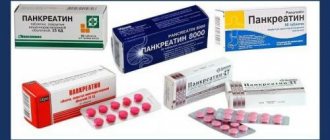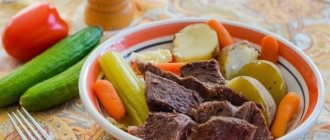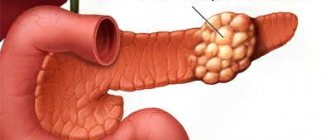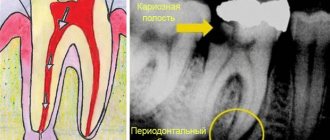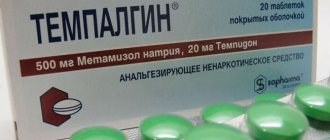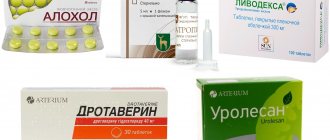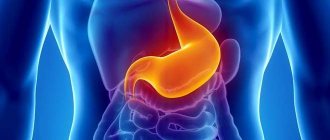At least once in their life, every person has encountered such a rather unpleasant symptom as pain in the stomach. A variety of factors can provoke its appearance, including poor quality nutrition and stressful situations. A person experiences a lot of discomfort when he has a stomach ache. What to drink, what pills can I take to relieve this pain? After all, usually a person immediately looks for help in such a situation in a home first aid kit.
My stomach hurts. What to drink, what pills?
Causes of pain
The stomach is one of the main elements of the digestive system. It is he who is responsible for breaking down and mixing food, preparing for the absorption of various nutrients into the body tissues. If it fails, the body is left without a complete source of nutrition. That is why it is important to take care of the stomach and pay a lot of attention to it.
Structure of the stomach
One of the main symptoms indicating that the stomach is not in order is a feeling of pain. Its appearance can be provoked by a large number of factors, ranging from overeating to the development of serious pathologies . And only by knowing the main cause of the pain syndrome can you understand how to eliminate it correctly and quickly.
Stomach ache
The causes of pain may be:
- constant consumption of fatty or spicy foods;
- binge eating;
- drinking alcohol and smoking;
- stressful situations;
- gastrointestinal diseases - ulcers, gastritis, pancreatitis, etc.;
- taking a large number of medications;
- increased acidity level;
- poisoning with toxic substances;
- long fasting.
Increased stomach acidity
Attention! If acute or systematic pain in the stomach occurs, you should immediately visit a doctor. In some cases, a person may need emergency assistance, which only an experienced specialist can provide.
If the pain is acute and systematic, consult a doctor
Pathologies of other organs, in particular the liver, kidneys, and pancreas, can also provoke pain in the stomach. A person with appendicitis also experiences pain. Often the pain is accompanied by other symptoms - nausea and vomiting, diarrhea, heartburn and headaches. The set of symptoms may vary depending on what caused the discomfort.
If pain in the stomach area appears immediately after eating, it can be either banal overeating, or an ulcer, inflammation of the stomach, or polyposis. Usually the pain goes away after the food is digested. If pain appears some time after eating and has an increasing character, then it can signal developing pancreatitis, gastritis, or cancer. Hunger pains come no earlier than 5 hours after the last meal . They have a pulling character and go away after eating. Typically, such pain is observed with ulcers.
Hungry pain in the stomach
Video: SOS signals from your stomach
Pain due to gastritis of the stomach
The main symptom of gastritis is pain, and it is so specific that it allows you to quickly differentiate gastritis from disorders of the intestines and other digestive organs. Pain syndrome in acute and chronic forms of the disease has its own characteristic features.
The main symptom of gastritis is pain
Simple catarrhal gastritis is characterized by moderate pain in the epigastric region - the area of the stomach, directly under the sternum in the center of the body. The syndrome is described by such adjectives as “sucking”, “pulling”, “squeezing”.
In other forms of acute gastritis, accompanied by erosive lesions of the mucous membranes of the organ, burns, and infectious inflammation, there is severe, almost unbearable pain in the stomach and behind the sternum. The sensations are so intense that some patients even lose their breath, especially when palpating or pressing on the epigastric zone.
Chronic gastritis has mild symptoms. The pain syndrome is almost not felt, except when the diet is violated or during the period of autumn-spring exacerbation of gastritis.
If the chronic form of the disease is accompanied by inflammatory, infectious or hypertrophic processes with permanent damage to the mucous membrane lining the internal walls of the stomach, the pain intensifies. It occurs immediately after a meal, at first you feel heaviness or fullness in the stomach, and then gradually increases. Patients characterize the pain syndrome as “dull”, “pulling”, “aching”.
The only exception is chronic atrophic gastritis. This type of pathology is accompanied by inflammation of not only the mucous membranes of the stomach, but also its glands, so the pain is sharp, stabbing, and paroxysmal.
Medications and their effects
Fortunately, pain in the stomach is not always a sign of the development of a serious pathology. But in any case, this is a signal that cannot be ignored. It is important to pay attention to your stomach, change your diet to a more gentle one, give up bad habits and start leading a healthy lifestyle. And medications will help relieve pain.
What medications to take for stomach pain
In each case, you need to use certain means. It is best if they are recommended by a doctor based on the diagnosis. However, symptomatic medications will help cope with momentary pain. They will not cure the cause, but they will relieve the pain. As a rule, these are ordinary antispasmodics or antacids.
Table. Types of drugs to eliminate unpleasant symptoms in the stomach.
| Group | Why do they take it? |
| Antacids | This type of remedy is used to reduce the acidity of the stomach. The drugs neutralize gastric juice and thereby calm the organ. They will help cope with heartburn and relieve pain. |
| Proton pump blockers | Such drugs reduce the amount of gastric juice secreted, as they have an antisecretory effect and soothe the stomach. As a rule, they are produced on the basis of omeprazole. |
| Analgesics | Medicines that relieve pain. |
| Antispasmodics | These drugs relieve spasms of the stomach muscles. |
| Gastroprotectors | These products will help protect the gastric mucosa from the effects of various substances. |
Gastroprotectors
On a note! For severe acute pain, such drugs are usually powerless. Injection of analgesics intramuscularly or intravenously will be required.
Tablets are powerless for severe acute pain
Treatment regimen
The amount of hydrochloric acid affects the acidity level of gastric juice. The action of certain medications is aimed at reducing or increasing the level of production of this substance. In addition, gastritis can have an acute or chronic form, accompanied by complications such as ulcers. For each of these conditions, a specific treatment tactic is used.
With low acidity
The treatment regimen for gastritis with low acidity is aimed at restoring the secretory function of the stomach. Antibiotics are used only when the disease is bacterial in nature. When selecting medications, the doctor takes into account the form of the disease. The atrophic type of the disease is accompanied by a violation of the structure of the glands. In the hypoacid form of the disease, the secretory function is blocked.
Treatment regimen:
- stimulating therapy (the main focus of the course of treatment is to increase the process of hydrochloric acid production);
- symptomatic therapy (medicines are used to eliminate nausea, heartburn, flatulence and other associated symptoms of gastritis);
- replacement therapy (the regimen is used when stimulant medications are ineffective).
With increased acidity
The general principles of treatment for gastritis with high acidity do not differ from standard therapy for other forms of the disease. The list of medications should include drugs to eliminate the cause of the inflammatory process, strengthen the immune system, and improve the functional state of the digestive tract. The main difference is the selection of medications to normalize the acidity of gastric juice. To reduce the production of hydrochloric acid, antacids and special blockers are used.
A mandatory addition to the course are drugs to accelerate tissue regeneration and have an enveloping effect.
In chronic form
The treatment regimen for chronic inflammatory process depends on the individual characteristics of the patient’s body. The doctor takes into account the acidity of gastric juice and accompanying symptoms. To prolong remission, vitamin complexes and medications can be prescribed to improve the functioning of the digestive system. Antibacterial therapy is carried out only during exacerbation of the disease.
Treatment of acute gastritis
In an acute inflammatory process, the main goals of therapy are to eliminate pain, destroy the causative agent of the disease, prevent complications and restore the functional state of the digestive system. The patient is prescribed antispasmodics, dopamine receptor antagonists, antibiotics, antacids, probiotics, and hepatoprotectors. The course of treatment must include astringents and enzyme agents.
Relief from an exacerbation attack should be carried out under the supervision of a physician.
For ulcers
An obligatory part of the treatment of an inflammatory process complicated by an ulcer is the prescription of proton pump inhibitors. Additionally, medications containing animal enzymes and histamine receptor blockers can be used. To prevent the spread of the inflammatory process, astringent and enveloping medications are used. Such remedies not only relieve inflammation, but also relieve the general symptoms of gastritis (nausea, vomiting, heartburn, belching, flatulence).
Contraindications
It is important to understand that any drug also has side effects that can aggravate the body’s condition. You need to thoroughly study the instructions before taking any pills. It is also advisable to consult with a doctor before starting to take any medications in a course. For example, antacids can cause constipation.
Attention! If it is not possible to contact a doctor right now, then you should take the drug that has a favorable safety profile and the fewest contraindications.
Give preference to drugs with the fewest contraindications
Contraindications to taking a number of medications may include:
- pregnancy and lactation;
- intolerance to the components included in the selected product;
- age up to 12 years;
- bleeding;
- a number of chronic diseases;
- kidney diseases.
Kidney disease is a contraindication
As for side effects, they are different for all drugs. However, some common ones can be identified - nausea, allergic reaction, problems with bowel movements, headaches. But they do not always appear. It is important to follow the dosage of the drug indicated in the instructions, and then side effects are likely to be avoided.
Take the pills prescribed by your doctor
List of tablets for stomach pain due to gastritis
The list of tablets for gastritis includes more than a thousand items. You need to understand that there is no universal pill that can quickly cure the disease.
All medications should be selected by a gastroenterologist, taking into account the individual characteristics of the course of gastritis.
Moreover, many medications taken without prior consultation with a doctor can significantly worsen the clinical picture of the disease and complicate correct diagnosis.
Omeprazole for gastritis
Omeprazole is a proton pump inhibitor that suppresses the production of hydrochloric acid.
Omeprazole is a proton pump inhibitor that suppresses the production of hydrochloric acid.
The mechanism of action is associated with inhibition of the enzyme that activates the exchange of hydrogen ions, which causes blocking of the final stage of acid formation.
As a result, there is a decrease in the levels of stimulated and basal secretion, regardless of the nature of the stimulus. The effect comes quickly and lasts 24 hours. Contraindications: pregnancy, lactation period.
Motilium for gastritis
Motilium is part of the group of second-generation prokinetics, designed to enhance the motor-evacuation function of the stomach. Increases the duration of duodenal and antral peristalsis, prevents slow gastric emptying, and significantly increases the tone of the lower sphincter (digestive).
Metronidazole is an antimicrobial agent that, in combination with Amoxicillin, is used to eradicate Helicobacter pylori
In some cases, it causes side effects such as headache and drowsiness.
Metronidazole for gastritis
Metronidazole is an antimicrobial agent that is used in combination with Amoxicillin to eradicate Helicobacter pylori. The drug penetrates microorganisms and destroys them at the DNA level.
Contraindications: blood diseases, pregnancy, organic lesions of the central nervous system.
Mezim for gastritis
Mezim is an enzyme medicine that helps normalize the digestion process. Mezim has a lipolytic, amylolytic, proteolytic effect and compensates for the lack of pancreatic enzymes.
Mezim is an enzyme medicine that helps normalize the digestion process.
Facilitates the digestion of proteins, carbohydrates and fats, helping their absorption in the small intestine. Contraindications: chronic/acute pancreatitis, hypersensitivity to the components of the drug.
Linex for gastritis
Linex is a probiotic that normalizes intestinal microflora. Linex contains Lebenin (active substance), lactose, gelatin, magnesium stearate and titanium dioxide. The drug facilitates the digestion of proteins and participates in the metabolic process of bile acids. Well eliminates diarrhea, constipation, belching, flatulence and abdominal pain.
De-nol for gastritis
De-nol is an antiulcer, gastroprotective and antibacterial agent, characterized by a pronounced enveloping effect.
In an acidic environment, the drug forms a protective film on the damaged gastric mucosa, which protects the lining from the negative effects of hydrochloric acid and promotes the healing of erosions and ulcers.
Allochol is a choleretic drug that enhances the secretory function of the gastrointestinal tract and liver
In Helicobacter pylori eradication schemes, De-nol is used as an antimicrobial drug.
Allohol for gastritis
Allochol is a choleretic drug that enhances the secretory function of the gastrointestinal tract and liver, stimulates the muscles of the bile ducts, inhibits the processes of fermentation and putrefaction in the intestines and eliminates bloating, flatulence and constipation.
Contraindications: acute hepatitis, duodenal and gastric ulcers.
What pills should I take?
What medications are recommended to be kept in the first aid kit in case of stomach pain? Among them, one can distinguish both expensive and cheap ones; a number of them have already been time-tested, but there are many tools that are quite new, but no less effective. The first aid kit may contain:
- Spasmalgon;
- No-Shpa or Drotaverine;
- Maalox;
- Almagel;
- Omez or Omeprazole;
- Mezim;
- Espumisan.
Mezim Forte
It is also recommended to have medications such as regular activated carbon or Enterosgel on hand. They will not relieve pain, but will cleanse the stomach of toxic substances.
Enterosgel
In general, all of the drugs listed have a minimum of contraindications and are able to put the stomach in order and relieve pain. If after taking any of them the pain does not go away within an hour, then it is important to immediately contact your doctor.
Fortunately, many who already have certain gastrointestinal diseases always keep in their medicine cabinet medications recommended by doctors to relieve pain. For people suffering from gastritis, it is advisable to have Phosphalugel or Almagel, Mezim, Festal or Pancreatin on hand. They will help pacify pain and normalize the condition of the stomach.
Pancreatin
Those diagnosed with ulcers are familiar with the acute attacks of pain that can occur after eating. They are often accompanied by nausea and heartburn. For exacerbations of ulcers, you can take De-Nol, Azitral, Omeprazole.
Omeprazole
Video: Pancreatin for stomach pain
Etiology and pathogenesis of stomach pain
The causes and mechanisms of stomach pain can be different:
- Violation of the integrity of the mucous membrane of the stomach and duodenum, which is often provoked by gastric juice containing hydrochloric acid. In addition, the pathological process can be triggered by alcohol abuse, nicotine addiction, and dietary errors, for example, eating spicy foods. Also, long-term use of non-steroidal anti-inflammatory drugs, such as Ibuprofen (Mig, Nurofen, Ibuklin), Diclofenac (Voltaren, Ortofen) reduces the production of histamine mediator, which protects the mucous membrane of the digestive tract, as a result it becomes vulnerable to the effects of aggressive exogenous factors. All this leads to the appearance of dull, aching pain that bothers a person for a long time.
- Another common cause of stomach pain is impaired organ motility, which occurs due to a disorder of nervous autonomic regulation. As a rule, this condition is observed in overly emotional people, in patients suffering from concomitant physical diseases, in women during the period of bearing a child. In this case, pain of a spasmodic nature is observed, and it goes away within a few hours.
Important! The appearance of acute dagger pain is characteristic of irritation of the peritoneum by hydrochloric acid of gastric juice. This can happen due to a violation of the integrity of the stomach, as a result of injury or perforation of an ulcer. With the development of such a pathological process, palpation of the abdominal wall can reveal tension in its muscles and unusual hardness. In this case, the patient should be hospitalized in the surgical department as quickly as possible.
Pregnant women and children
These two categories of people require special treatment. Expectant mothers cannot take absolutely any medications, because they are responsible for the unborn baby, and everything that enters their gastrointestinal tract will also enter the baby’s still fragile body. Children under 12 years of age react acutely to certain medications, and thoughtless use of medications can cause irreparable harm to their body.
In pregnant women, stomach pain is not always associated with the development of pathologies. Most often, this symptom is observed when the internal organs are compressed by the growing uterus. Stress, toxicosis, and infections can also trigger pain. It is best to eliminate pain using traditional methods, not pills, and then only after consultation with a specialist. In some cases, the doctor may allow you to take No-Shpu.
No-Spa during pregnancy
Attention! In the first trimester, stomach pain can signal an impending threat of miscarriage!
Children often suffer from stomach pain. Usually the reason is trivial - overeating, dirty food getting into the stomach. In very young children, pain is associated with colic. However, it is extremely difficult to determine the cause on your own and self-medication is not recommended. However, very young children can be given Espumisan, Babycalm, Samsimplex. For older children, doctors recommend giving Espumisan, Festal, Mezim.
Babycalm
Indications for taking painkillers
Painkillers for stomach pain can be taken as prescribed by a doctor in the following cases:
- the patient does not have tension in the abdominal wall (otherwise surgical treatment is indicated);
- there is a dull, aching and sharp pain in the epigastric region;
- the appearance of pain is associated with eating;
- a diagnosis of gastritis, gastric ulcer, gastroesophageal reflux disease has been confirmed, and functional (non-ulcer) gastric dyspepsia has been observed.
The best drugs for stomach pain
Let's get acquainted with a number of drugs that are now most popular as remedies for stomach pain.
For example, the drug Escape is considered a drug with a minimum of side effects, since it is not absorbed into the blood. It is often prescribed to those who suffer from gastritis and ulcers; it is also suitable for ordinary dyspepsia. The product is made on the basis of bismuth dicitrate, which is capable of creating a protective film on the mucous membrane and thereby ensuring its protection from the internal aggressive environment. The drug also relieves inflammation.
Escape
Maalox is another popular remedy that is combined. It contains aluminum and magnesium hydroxide. The drug, like the previous one, creates a protective shell inside the organ and reduces the acidity of the internal environment. But this is not a therapeutic, but a symptomatic remedy, and its effect is not long-lasting.
Maalox
Duspatalin is an antispasmodic that is prescribed if it is necessary to relax the intestinal muscles. It is also a symptomatic drug and is not suitable for the treatment of pain.
Duspatalin
Gaviscon is an antacid based on calcium carbonate, sodium bicarbonate, and also contains sodium alginate. It brings the acidity of the stomach to minimum thresholds, normalizes the pH, and forms a protective film on the walls of the organ. It will help eliminate discomfort after eating, heartburn, and reflux. But the product has many contraindications.
Gaviscon
Omeprazole is a drug well known to ulcer sufferers. It eliminates stomach acidity. It is usually taken over a long course.
Omeprazole eliminates stomach acidity
On a note! The most common cause of stomach pain is increased acidity. In this case, it is best to take Gaviscon or Becarbon. Alternatively, you can neutralize acidity by taking a soda solution.
You can also use the following drugs to relieve stomach pain:
- Smecta;
- Antacid;
- De-Nol;
- Besalol;
- Gastromax;
- Omez;
- Festal;
- Panzinorm.
Panzinorm
If your stomach hurts after taking any medications, then most likely the rules for taking them were violated. It is important to read the instructions carefully and follow all directions exactly - for example, take the tablets only after meals with water. Otherwise, they may either not have the desired effect or cause stomach discomfort.
How does the stomach hurt with gastritis?
Gastritis is a common gastric disease caused by inflammation of the inner mucous membrane. Such inflammation usually leads to disruption of the entire gastrointestinal tract.
Gastritis is a common gastric disease caused by inflammation of the inner mucous membrane.
Chronic gastritis of the stomach is characterized by constant inflammation of the gastric mucosa. At first, the disease may occur with various secretory accompaniments, although more often there is a tendency towards a decrease in secretion and the level of acidity of gastric secretions. Gastritis of the stomach with normal or increased secretion is often superficial or without atrophy of the gastric glands. It occurs most often in young men. It is characterized by gastritis pain, heartburn, belching, and a feeling of heaviness in the stomach after eating.
The nature of pain in gastritis allows us to identify important diagnostic differences with hepatic colic.
Stomach pain rarely begins completely suddenly. They reach their greatest intensity within 10 minutes, and sometimes slower, while during gallstone disease the pain often reaches its highest level after just a couple of minutes. Unlike the symptoms of gallstone disease, pain with gastritis is also slower and subside. Based on the method of occurrence and intensity of pain, diagnostic conclusions are hardly possible, although usually with cholelithiasis the pain is more intense than with gastritis.
How to take the pills?
Sometimes taking pills turns out to be quite a difficult task for a person. Let's look at some ways you can force yourself to eat them.
Step 1: You can use a piece of bread to eat the tablet. It needs to be chewed and before the moment when you want to swallow it, a tablet is added to it. You need to swallow it along with bread. You can also replace bread with cookies. After this, it is recommended to drink water.
You can use bread to swallow the pill
Step 2. The tablet can be inserted into a piece of marmalade and swallowed along with it. The main thing is not to chew the marmalade.
Stick the tablet into the marmalade
Step 3: You can also try swallowing the tablet placed in a spoon with honey or peanut butter.
Swallow a tablet with honey
On a note! Options using food are not suitable if the tablets must be taken on an empty stomach.
Step 4. You can practice taking pills on small candies. They must be swallowed whole.
You can practice with small pills
Step 5. The tablet can simply be placed on the tongue and washed down with plenty of water. Usually, in the process of swallowing liquid, the drug also goes into the stomach.
Take the tablet with plenty of water
Step 6. Alternatively, you can use the two-sip method. To do this, the tablet is placed on the tongue, a large amount of water is taken into the mouth and swallowed, but without the tablet. The latter is swallowed by repeatedly taking water into the mouth. The method makes it possible to open your throat as wide as possible during the first sip, and the second time it will be easier to swallow the tablet.
Two Sip Method
Step 7. Before taking the pills, it is best to relax, then the process will be much easier and more enjoyable.
Relax before taking pills
Possible causes of pain
When any of us have a stomach ache, our first reaction is to find a pain reliever. With the help of medicine, it is possible to overcome unpleasant sensations for a while, sometimes even completely eliminate them if the medicine was chosen correctly. But sometimes the remedy that was supposed to help turns out to be ineffective or has no effect at all. What could be the reason? This happens when the user incorrectly determines the cause of the pain, which is why the active ingredients of a particular pill do not have the desired effect.
Here are the most common options that cause pain in the stomach:
- The presence of acute and chronic gastrointestinal diseases.
- Reaction to external irritants (ingestion of unsuitable food, allergic reactions).
- Stress.
Each problem requires a special approach; there is no universal remedy that will help cope with all problems at the same time. For example, analgesics will help relieve spasms and reduce pain, but will not get rid of the problem itself that causes pain. Sedatives will help temporarily stabilize the nervous system and relieve tension. Enzymes in the form of capsules and tablets improve the absorption of food.
Therefore, before taking a pill, you need to know which one and how it works, and whether it is worth using it in this case. It is also necessary to take into account that not all drugs can be used together without side effects, so the right choice is extremely important.
Gastrointestinal drugs
Therapeutic therapy for pathologies of the gastrointestinal tract usually includes several areas: taking medications, following a diet, giving up bad habits, and changing lifestyle.
Based on the nature of their effect on the body, medications can be divided into several groups, each of which is responsible for relieving a specific symptom.
Antimicrobials
The treatment regimen for gastritis and ulcerative lesions of the mucous membrane in the case of detection of pathogenic microorganisms (Helicobacter pylori) is supplemented by the prescription of antibiotics:
- Amoxicillin is a semi-synthetic drug based on penicillin, easily absorbed without causing irritation;
- bismuth preparations (De-Nol), which, in addition to the antibacterial effect, has the property of enveloping the mucous membrane, protecting and restoring it;
- the effectiveness of macrolides, including Klacid, Sumamed, Rulid, in fighting infection has been confirmed by numerous studies.
For diarrhea lasting more than three days and the inability to see a doctor (on long trips, living in sparsely populated areas), Ciprofloxacin is used. The course should not exceed 3 days.
Medicines for heartburn and gastritis
Heartburn is a sign of increased stomach acidity, and is essentially acid reflux during gastritis. To get rid of the unpleasant symptom of burning in the esophagus, drug treatment is prescribed - antacids:
- aluminum and magnesium hydroxides (Almagel) – reduce acidity to a normal level, have an anesthetic effect;
- aluminum phosphate (Phosphalugel) – has a calming, enveloping effect;
- hydrotalcite (Rutacid) – chewable tablets with an antacid effect;
- calcium carbonate, magnesium (Rennie) - chewable tablets that regulate acidity in the stomach;
- complex preparations with a complex composition (Relzer, Vikair, Vikalin) - a mixture of antacid substances with herbal additives.
It must be remembered that the listed medications for any gastritis can interfere with the absorption of other medications and beneficial substances, so the course of administration without interruption should not exceed 2 weeks, and the interval for daily use should not be less than two hours. You should not treat heartburn with soda yourself and save on your health, because... its use provokes even greater production of acid by the stomach. It is better to start treatment with antacids in time, the price of which ranges from 100 to 800 rubles.
List of tablet groups
The medicine is selected depending on the diagnosis, the severity of the disease and the clinical picture. To treat diseases of the stomach and intestines, drugs from the following groups are used:
- antispasmodics;
- proton pump inhibitors;
- enzyme preparations;
- antacids;
- gastroprotectors.
Each group has typical representatives, which are the drugs of choice if the picture of the disease and its course are also typical. Representatives of these groups act differently, therefore only the attending physician should choose them based on the diagnostic results.
Expensive and cheap medicines - a fundamental difference
In most cases, inexpensive stomach pills are domestic analogues of imported medicines. Common active ingredients are produced by pharmaceutical companies in different countries under different trade names, and due to the lack of transportation costs, domestically produced drugs with the same active ingredient may cost less.
Sometimes the composition of the drug is supplemented with other active ingredients - such a development is additionally patented and has no analogues. In this case, purchasing imported medicine is preferable. When it comes to price, we are also talking about a premium for branding and for the quality of purification and synthesis of all chemicals contained in the drug.
Action of stomach tablets
The drug is chosen depending on what problem is found in the patient. Diagnosis is carried out using hardware methods: ultrasound, MRI, gastroduodenoscopy, as well as laboratory testing of blood, feces and urine.
Increased acidity and diseases associated with it are treated with antacids and enveloping agents. Erosive and ulcerative changes in the mucous membranes are treated with antiulcer agents and gastroprotectors. If the cause of the ulcer is the Helicobacter bacterium, special antibiotics are used.
Proton pump inhibitors are effective in the treatment of stomach diseases that develop against the background of unstable acidity. Enzyme preparations are indicated for organic and functional diseases of the pancreas and in cases where the body’s own enzymes are insufficient.
Gastroprotectors activate regenerative and protective mechanisms, increase the resistance of the mucous membranes of the stomach and intestines to the effects of an aggressive environment. Antispasmodics eliminate spasms of smooth muscles and the resulting pain.
Antispasmodics
Medicines in this group are used to eliminate moderate and mild pain caused by spasms of the smooth muscles of the gastrointestinal tract. List of cheap drugs:
- Papaverine – price from 12 to 92 rubles;
- Drotaverine – from 44 to 111;
- Spasmol - from 20 to 104;
- Vero-Drotaverine – from 15 to 65;
- Spasmonet – from 55 to 79.
Medications in the middle price category: Sparex, Duspatalin, Trimedat, Neobutin, Plantex, Iberogast. The last two drugs are of plant origin. Plantex is approved for infants.
Indications for use
Functional dyspepsia, irritable bowel syndrome, exacerbation of peptic ulcer before the use of antibiotics, biliary dyskinesia. Spasms of the smooth muscles of the intestine, leading to pain and difficulty in moving feces.
Contraindications
Antispasmodics are contraindicated in case of insufficiency of renal and/or hepatic function, impaired atrioventricular patency, or obstructive disease of the respiratory system. Prescribe with caution to elderly people. Prohibited for functional myocardial disorders, cardiogenic shock, low blood pressure and atherosclerosis.
Overdose
Excessive concentration of antispasmodics may be accompanied by indigestion, collapse, or complete atrioventricular block. There is a disturbance in heart rhythm and a decrease in blood pressure. Treatment is symptomatic.
Proton pump inhibitors
Proton pump inhibitors prevent the production of hydrochloric acid and gastric juice by regulating the transfer of protons. Cheap representatives:
- Omeprazole – from 45 to 144 rubles;
- Gastrozol – from 95 to 102;
- Ranitidine – from 22 to 65.
Representatives of other price categories: Omez, Pariet, Ultop, Rabeprazole, Rabiet, Noflux, Controloc, Pantoprazole.
Most of these drugs require a prescription from your doctor.
Indications
Gastrointestinal diseases caused by unstable acidity. Erosive and ulcerative lesions of the mucous membranes of the intestines and stomach. Pain in the epigastric region, dyspeptic disorders.
Contraindications
Concurrent treatment with nelfinavir drugs. Hypersensitivity to the active substances, auxiliary composition or representatives of benzimidazoles.
Overdose
Excessive dosages of proton pump inhibitors cause headaches, dizziness, vomiting and diarrhea. A depressive, depressed state, and confusion may develop.
Enzyme medications
Preparations in this group contain substitutes for enzyme substances to improve the digestion process if the body’s own enzymes are not enough. Representatives:
- Pancreatin – from 42 to 77 rubles;
- Penzital – from 66 to 154;
- Pancreatin Forte – from 75 to 119;
- Acidin-Pepsin – 107 rub.
Medicines in this group at higher prices: Mezim, Creon, Festal, Enzistal, Digestal, Panzinorm, Penzital.
Indications
Slow digestion, eating unusual foods, flatulence, dyspepsia. Incomplete digestion of food, fermentation processes, overeating. Chronic dystrophic-inflammatory diseases of the gastrointestinal tract.
Contraindications
Acute form of pancreatitis or exacerbation of the chronic form, intestinal obstruction of any etiology.
Overdose
Symptoms of overdose include increased concentrations of uric acid and the presence of blood in the urine. Constipation develops in childhood. Therapy involves stopping the drug and eliminating symptoms.
Antacids
Medicines to neutralize excess acid. May additionally contain carminative, laxative, anesthetic and antispasmodic substances. Activate regeneration processes.
Titles:
- Gastracid – from 158;
- Maalox – from 119;
- Gastal – from 161;
- Gaviscon – from 159.
More expensive analogues: Phosphalugel , Almagel , Rennie .
Indications
Elimination of stomach pain, belching, heartburn, indigestion caused by high acidity.
Contraindications
End-stage renal failure, Alzheimer's disease, chronic diarrhea. Severe abdominal pain of unknown origin.
Overdose
Symptoms: vomiting, nausea, decreased blood pressure, muscle weakness and drowsiness. Heart rhythm disturbances, in severe overdoses - bronchial spasms, renal failure.
Gastroprotectors
Antiulcer agents that act on the mucous membranes of the stomach and increase their resistance to aggressive factors, including drugs, alcohol, spicy foods, coffee. Representatives:
- Ulkavis – 216 rubles;
- Novobismol – 346 rubles;
- Escape – 265.
Other representatives: Vis-Nol, Gastro-Norm, Methyluracil, Misoprost.
Indications
Peptic ulcers without bleeding, gastritis, gastroduodenitis, dyspeptic disorders, irritation of the intestinal mucous membranes.
Contraindications and overdose
Severe liver and kidney dysfunction is a contraindication. An overdose is accompanied by a change in the color of stool and symptoms of renal failure. Treatment: absorbents, laxatives, gastric lavage.
Preventive measures
The main measures to prevent stomach diseases are a balanced diet and a nutritious diet. To prevent diseases, it is important to give up bad habits and fast food.
The functioning of the gastrointestinal tract is also affected by indicators of physical activity - low activity slows down the digestive processes and intestinal motility. Timely consultation with a doctor will allow you to avoid chronic processes and dangerous conditions - pancreatitis, perforation of ulcers.
Etiology of pain
Stomach pain can occur for many reasons, each of which requires a special approach and course of medical therapy, and sometimes surgical intervention.
Stomach pain is observed in the following pathological conditions:
- gastric polyposis;
- peptic ulcer of the stomach and duodenum;
- gastritis.
Pain syndrome can occur due to unfavorable factors: poor diet, stress, allergic reaction, poisoning, trauma, dyspepsia, kidney and liver diseases, drug and alcohol abuse, and smoking.
Taking medications for pain is indicated in the following cases: inflamed esophagus, gastritis, peptic ulcers, increased or decreased acidity of gastric juice, food poisoning, spastic constipation, spasms, colic, damage to the mucous membrane, as well as stress spasms.
Tablets for pain should be taken according to the instructions, having studied the available contraindications and side effects. Useful articles on the topic - what to do when your stomach hurts.
Most common choice
In most cases, when stomach pain occurs, we know what to do. It is believed that you need to take a pill. There is even a list of the most used medications:
- No-shpa - painkillers in the form of tablets. It’s in almost every family and helps out very often.
- Mezim is a medicine for the stomach, helps in a variety of situations.
- Omeprazole is a specialized remedy that is usually available in families who are faced with hereditary gastrointestinal problems.
- Maalox is an antacid used for peptic ulcers and gastritis.
- This also includes Enzistal, Festal.
Almost every family has one or more of these medications. If your stomach hurts, you should look for some of this in your home medicine cabinet. Festal, Enzistal, Mezim and No-shpa should almost certainly be available, since they have the widest range of applications and the minimum of contraindications. Agents that protect the gastric mucosa (like Maalox) are less effective in suppressing pain, but have a very strong effect on the body and digestive system of a healthy person, so they should not be used unless necessary.
Reviews from doctors
“I quite rarely prescribe antacids, as I consider it rather a symptomatic treatment. Proton pump inhibitors and antiulcer medications are much more effective in this regard, as they act on the cause. But patients often come to the appointment and admit that they have already bought antacids themselves and they only helped temporarily.”
Sergey Nikolaevich, gastroenterologist, St. Petersburg
“Treatment must begin with normalizing the diet, otherwise no medications will be effective. I still prefer imported medicines, but they are not always available to patients, so we choose from the range of domestic manufacturers. Sometimes there is simply no suitable analogue.”
Victor Ivanovich, gastroenterologist, Tula
Contraindications for use
Tablets, no matter how effective they are, have a number of contraindications that you should immediately pay attention to:
- You should not take pills if you have severe kidney problems.
- If there is intolerance to drugs or their components.
- During pregnancy and breastfeeding. For pregnant women, it is very difficult to choose an effective and harmless remedy for pain, and it is very difficult to endure changes in the body without the help of medications. In the first trimester, the gastrointestinal tract and stomach suffer, so before using any painkillers for this organ, you should consult your doctor.
- For children under 12 years old. Many drugs have a fairly strong effect on the body, especially on the secretion of substances, so there is no point in experimenting. It is better to limit yourself to the simplest analgesics in small doses.
What can happen if you ignore the instructions and contraindications? The following side effects may occur:
- prolonged bouts of nausea;
- profuse vomiting;
- changes in tongue color;
- changes in the color of stool;
- allergic reactions, rash, swelling;
- pain and heartburn.
The discomfort goes away over time if you stop taking the pills.
Medicines for gastritis and ulcers
Inflammation of the gastric mucosa is accompanied by acute pain concentrated in the epigastric region. Clinical picture: low blood pressure, fever, sweating, belching, flatulence, nausea, gag reflex, loose stools or constipation, and heartburn. With such symptoms, the following medications will help: Atropine, Piren, Almagel, Gastropin, Rabeprazole, Festal, Mezim, Pancreatin and others. In order to understand how such tablets for stomach ulcers work, they need to be studied more carefully.
With peptic ulcer of the duodenum and stomach, acute, cutting pain is observed. Most often, it appears after eating. Clinical picture: nausea, belching, flatulence, weight loss, malaise, blood from the anus, vomiting. Recommended medications: Azitral, Antacid, De-Nol, Histodil, Kvamatel. This pharmacological group eliminates pain and normalizes the activity of the gastrointestinal tract.
Pancreatitis is inflammation of the pancreas. The nature of the painful sensations associated with the disease is cutting, pulling and sharp. Symptoms appear after spicy, fatty foods, so during therapy you will need a strict diet drawn up by the treating doctor. To normalize the condition of a sick person, the following medications are prescribed: Creon, Festal, Mezim, Pancreatin.
Effective pain medications
Tablets for abdominal pain are intended for oral administration, most often they are coated with a protective coating. Medicines for the treatment of pain can be dissolved, chewed and swallowed with water. In some cases, a special medicine is used in the form of a solution. It should be taken 1 or 2 teaspoons. During the period of exacerbation of the disease, drugs for intramuscular or intravenous administration may be prescribed.
Painkillers for the treatment of the gastrointestinal tract are presented in a wide range. The following drugs are considered the most effective:
- Maalox;
- No-Shpa;
- Pancreatin;
- Nurofen;
- Almagel;
- Spasmalgon;
- Phosphalugel;
- Mezim;
- Espumisan;
- Drotaverine.
Medicines are prescribed according to symptoms. These medications can quickly relieve pain and discomfort and normalize the condition.
Even if the pain syndrome has passed and no longer bothers you, it is recommended to visit a doctor and get examined, as the attack may recur.
Review your own diet, since normal functioning of the gastrointestinal tract requires a strict balanced diet. Diet therapy excludes: alcohol, smoking, sweets, coffee, strong tea, fatty, spicy and fried foods, baked goods and fresh bread, smoked meats and sausages. If the pain rarely bothers you, try to follow the principle of proper nutrition to avoid relapse and worsening of the condition. Thanks to diet, you can prevent dangerous pathologies.
Phytotherapy
Oils that have a good effect are flaxseed, sea buckthorn and olive. Take one teaspoon twice a day (in the morning on an empty stomach and before bedtime). You can drink it with a small amount of water.
In case of high acidity, prepare an infusion of two teaspoons of flax seeds, pour a glass of boiling water over them and let them stand overnight. Drink strictly before meals.
For low acidity, use wormwood infusion at the rate of one teaspoon of dry herb per glass of boiling water. Drink this glass in several doses throughout the day.
Mineral water. For high acidity – Borjomi, Essentuki, Jermuk. When low - Mirgorod.
Features of treatment during pregnancy
Pregnant women experience pain in the gastrointestinal tract quite often. However, discomfort does not always signal illness. The most common cause of pain is the growth of the uterus, as a result of which all internal organs are displaced. Most often, such sensations occur at a later date.
If such symptoms are present in the early stages, then there is a risk of miscarriage, so you should urgently report all suspicious manifestations to your gynecologist. The causes of abdominal pain in pregnant women include the following factors:
- diarrhea or constipation;
- stressful situation;
- indigestion and overeating;
- contractions are false;
- heartburn;
- gastritis;
- infection;
- toxicosis.
During pregnancy, it is undesirable to take medications, so traditional recipes are recommended: mineral waters, herbal teas and decoctions, honey and aloe. As for medications, No-Shpa is allowed, but not in all trimesters. In some cases, suppositories with papaverine are prescribed.


